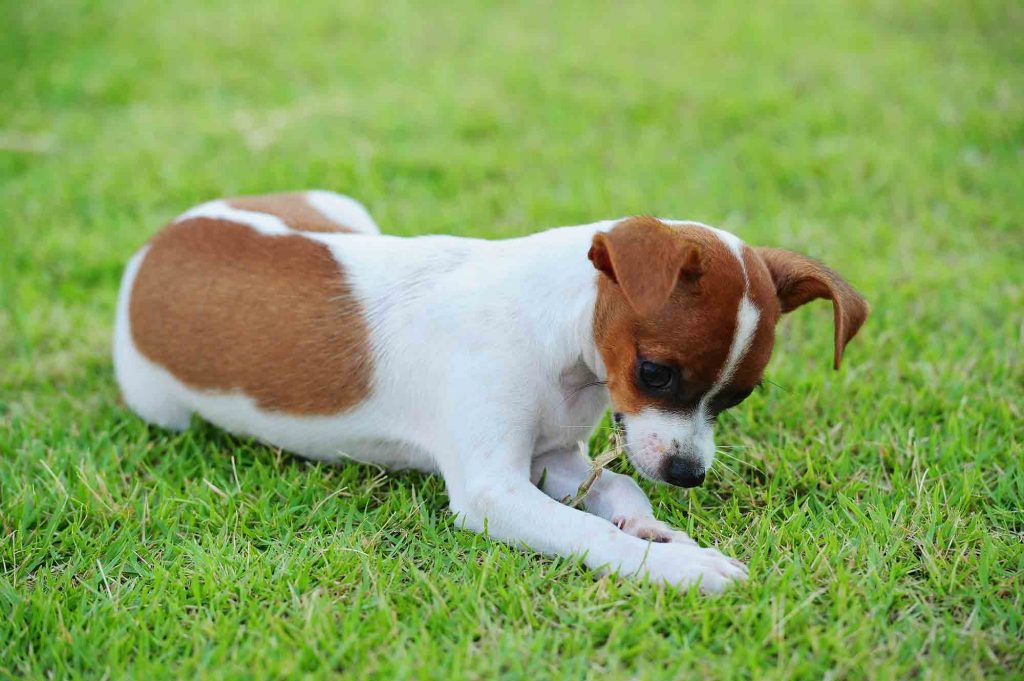 It’s not uncommon to see a dog munching on something we wouldn’t necessarily qualify as “food.” Dogs, after all, are the experimental gourmets, willing to ingest all sorts of things. Unfortunately, this makes them prone to poisoning when we aren’t paying attention. Among the least noxious of these “entrees” is grass.
It’s not uncommon to see a dog munching on something we wouldn’t necessarily qualify as “food.” Dogs, after all, are the experimental gourmets, willing to ingest all sorts of things. Unfortunately, this makes them prone to poisoning when we aren’t paying attention. Among the least noxious of these “entrees” is grass.
Countless dog owners have pondered why their pooches have a palate for the lawn salad. “Is my dog sick?” “Should I stop this behavior?” “Is grass eating normal?” These are all questions we at West Park Animal Hospital have received over the years, making the mystery of why some dogs eat grass one that we’d like to help you solve.
Why DO Dogs Eat Grass?
Although some may be alarmed at the sight of a pet ingesting grass, this behavior is not out of the ordinary. Grass eating is somewhat of a normal occurrence that’s been the subject of debate for some time. Speculation has resulted in numerous theories, none of which have been proven.
However, some common reasons you may have heard include:
Evolution – Dogs are omnivores and unrelenting scavengers. Because their ancestor, the wolf, primarily hunted herbivores like rabbits and deer, it’s believed the taste of grass (which would have been found in the stomach and intestines) is reminiscent of these prey animals.
Illness – One of the most acceptable theories about why dogs eat grass is that it helps to relieve nausea. Many pet owners attest to a “rumbling belly” prior to the ingestion of grass. Additional (though inconclusive) evidence suggests that grass eating induces vomiting, which acts as a form of relief. However, vomiting only occurs in less than about 30% of dogs after eating the green stuff.
Hunger – Dogs lacking certain vitamins, minerals, or fiber are thought to be more enticed by plant material. Even when deficiencies aren’t present, those on restrictive diets will often “graze” out of hunger.
Parasites – Certain mammals have been known to use grasses and other plants as a form of “self-treatment” for intestinal parasites. Since grasses and other fibrous plants aren’t easily digested, they’re thought to act as a kind of internal “sweep” that cleanses the GI tract of parasites.
Compulsion – In some extreme cases, dogs dealing with phobias or anxiety will sometimes develop compulsive behaviors, which may include ingesting grass, feces, or other substances.
While all these arguments have some merit, in most situations, grass eating occurs because, well, your dog has access to grass and he or she simply enjoys eating it. In other words, your dog is probably just doing a normal dog behavior that isn’t cause for concern – unless, of course, this is a very new behavior that seems to correlate with another problem.
When to be Concerned
If your dog has suddenly taken an interest in grass, it’s a good idea to have him or her examined to rule out any underlying health issues. To make sure your dog is just “being a dog,” please give the team at West Park a call or schedule an appointment.
The post Pass the Greens! Why Some Dogs Eat Grass appeared first on West Park Animal Hospital Blog.

